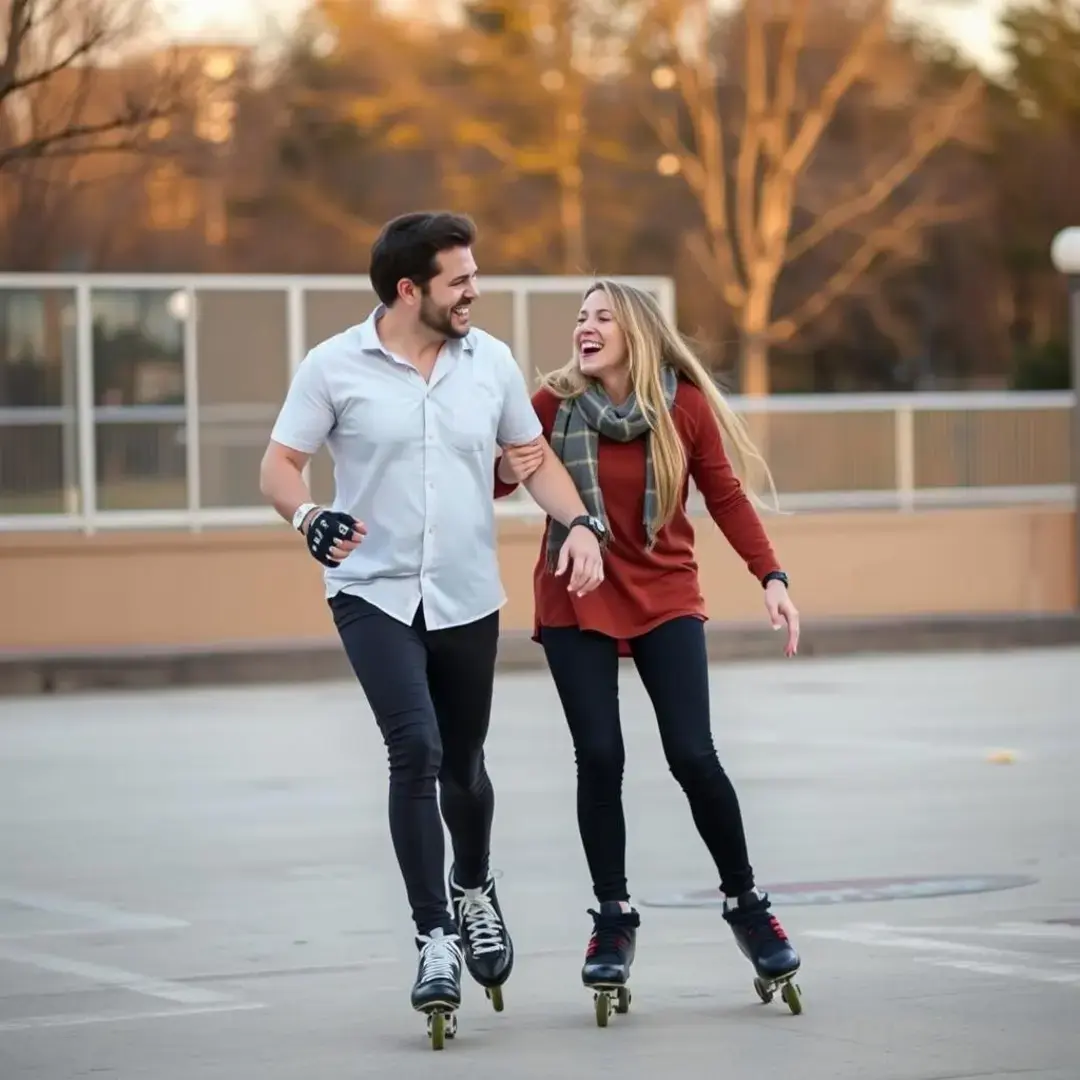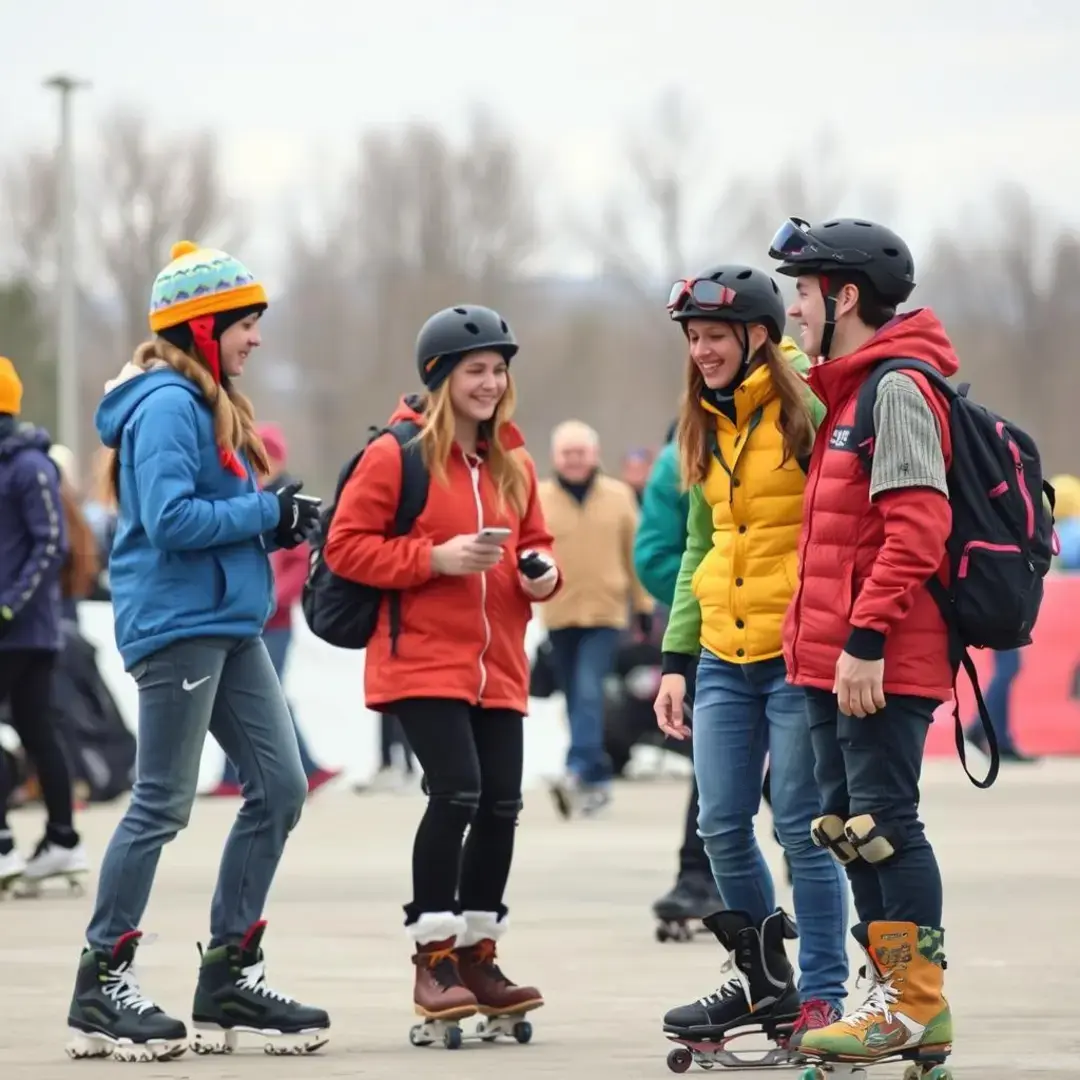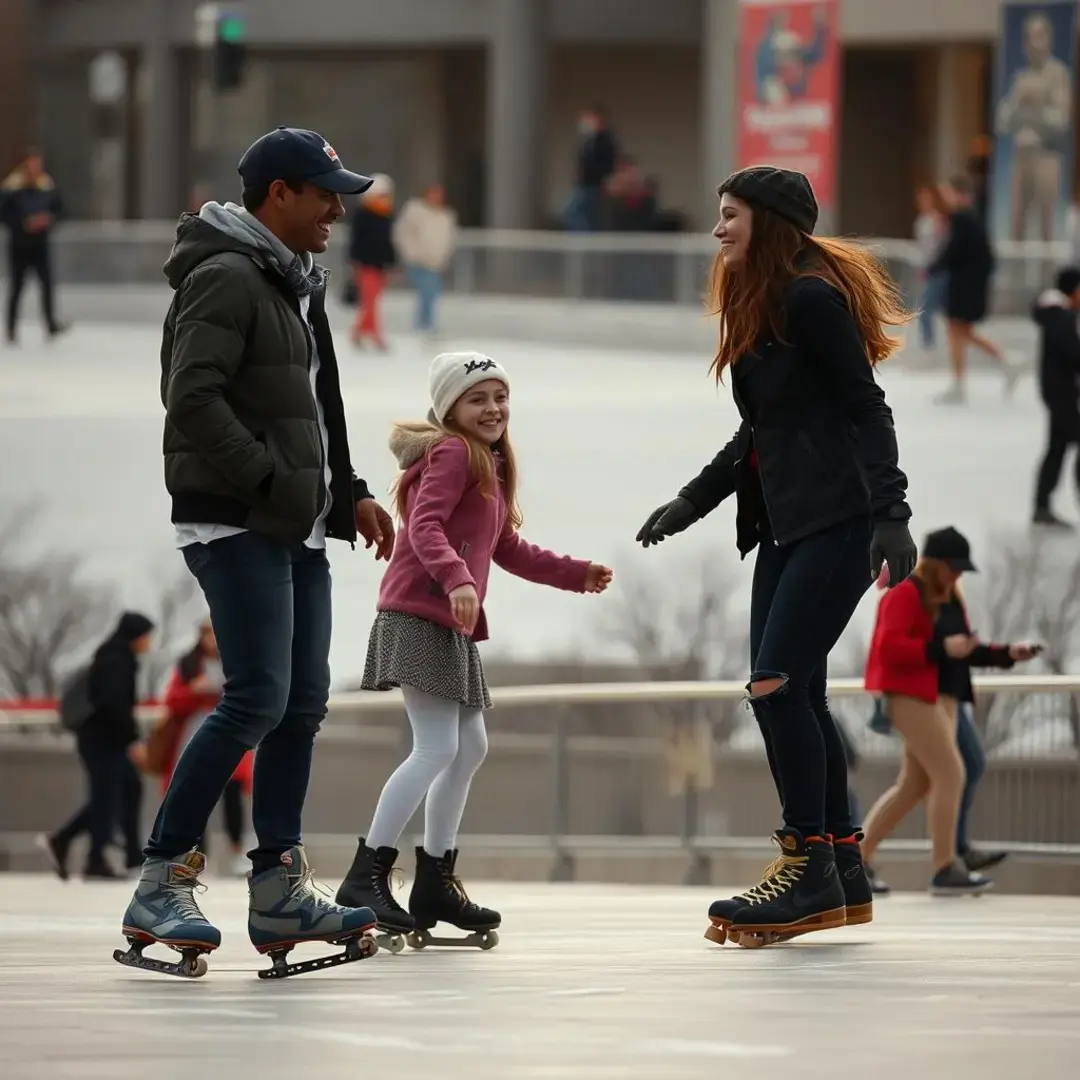The Allure of Roller Skating

A Timeless Pastime
Roller skating has long been a cherished activity, bridging generations through its blend of fun and physical exercise. Whether it’s a leisurely glide around the rink or an energetic session of roller derby, skating offers something for everyone. Its enduring popularity speaks to its versatile appeal, making it a beloved pastime in communities worldwide.
While many associate roller skating with modern rinks and vibrant music, its origins trace back over 140 years. The very first roller rink in Chicago opened on November 10th, 1880, marking the beginning of a rich skating heritage in the city. Interestingly, roller skating began in Europe and made its way to the United States in 1863 with the invention of the Clon skate, the precursor to today’s quad skates.
Roller skate technology has come a long way since the early days of inline and single-wheel designs. The introduction of the four-wheel quad skate revolutionized the sport, providing better stability and maneuverability. Innovations continued with adjustable sizing, improved wheel materials, and enhanced boot designs, making skating more accessible and enjoyable for enthusiasts of all levels.
Roller Skating in Chicago: A Rich History
Chicago’s roller skating scene has always been vibrant and influential. The city’s first rink set the stage for a flourishing community, attracting skaters from all walks of life. Early rinks were elaborate structures, akin to theaters, reflecting the city’s bougie nature and commitment to making roller skating a fashionable and upscale activity.
Initially, roller skating was an exclusive pastime for the elite. Skaters dressed in formal attire, enjoying live bands and sophisticated environments. However, as roller skates became more affordable and accessible, the activity transitioned into a popular form of entertainment for the masses. This democratization allowed people from various social backgrounds to enjoy the joy of skating.
Roller derby, a dynamic and competitive aspect of roller skating, gained significant traction in Chicago during the 1930s. Amid the Great Depression, Leo Selzer introduced a more entertaining and spectator-friendly version of derby, making it a staple in Chicago’s roller skating culture. Roller derby became synonymous with the city’s resilience and creativity, captivating audiences with its blend of athleticism and drama.
Roller Skating Today

The Resurgence of Roller Skating During the Pandemic
The COVID-19 pandemic saw a surprising resurgence in roller skating’s popularity. With indoor rinks closing and outdoor activities gaining traction, many turned to roller skating as a means of staying active and socially engaged. The absence of rink access led skaters to embrace outdoor skating, revitalizing interest in the sport.
Social media platforms like Instagram, TikTok, and YouTube played a pivotal role in this resurgence. Skaters began sharing their skills, routines, and skating culture online, inspiring a new generation to take up the sport. Viral videos and challenges created a vibrant online community, fostering connections among enthusiasts worldwide.
Today, roller skating transcends age barriers. From teenagers mastering JB skate moves in Chicago to seniors enjoying leisurely laps at local rinks, the sport caters to a diverse demographic. This inclusivity has strengthened roller skating’s position as a universal activity, promoting health, happiness, and community spirit across all age groups.
Different Skating Styles
Traditional roller skating encompasses a variety of moves that emphasize balance, technique, and rhythm. Skaters often perform in pairs or groups, showcasing synchronized moves and intricate footwork. Mastery of techniques like skating backwards and performing trios enhances the overall skating experience, making it both challenging and rewarding.
One of Chicago’s unique contributions to roller skating is the JB skate style, inspired by the legendary James Brown. This style emphasizes fluidity, sharp turns, and dynamic movements, setting it apart from traditional skating techniques. While mastering JB skating can be challenging, it offers skaters a chance to express creativity and flair on the rink.
Tips for Aspiring Skaters

Overcoming the Fear of Falling
Fear of falling is a common hurdle for new skaters. However, overcoming this fear is essential for building confidence and enjoying the sport. By embracing the learning process and seeking support from experienced skaters, beginners can gradually conquer their anxieties and master the basics of roller skating.
Taking formal lessons with qualified instructors ensures that skaters learn proper techniques from the outset. Dr. Janice Hooker Fortman emphasizes the value of structured learning, where beginners can gain foundational skills and safety tips. Proper technique not only enhances performance but also minimizes the risk of injury, making the skating journey smoother and more enjoyable.
Confidence on wheels comes with practice and persistence. Engaging in regular skating sessions, setting achievable goals, and celebrating small victories help build self-assurance. As skaters become more comfortable with their movements, they can explore advanced techniques and participate in community events, further enriching their skating experience.
Essential Gear for Beginners
Equipping oneself with the right gear is crucial for a safe and enjoyable start. Beginners should invest in quality roller skates that fit well and provide adequate support. Protective gear, including knee pads, elbow pads, and wrist guards, offers essential protection against falls. Additionally, maintaining a positive mindset and being open to learning can significantly enhance the skating journey.
The Personal Impact of Roller Skating

Finding the Right Instructor and Skating Community
Chicago boasts a vibrant skating community with numerous resources for aspiring skaters. Rinks like Rink Fitness Factory on 87 and Greenwood, MLK Center, Glenwood, Lywood, and Fleetwood offer lessons and community events. Instructors such as Anita Roberts, Paul, Calvin, and others provide personalized guidance, while local clubs and online forums connect skaters, fostering a supportive environment for growth and camaraderie.
Marcy Hill’s Skating Journey
Marcy Hill Johnson’s journey into roller skating is a testament to passion meeting opportunity. Transitioning from a 12-year career in human resources to becoming a prolific freelance writer, Marcy found solace and confidence on the roller rink. Her dedication to skating not only honed her physical skills but also enriched her personal life, leading her to meet her husband and inspiring her creative endeavors.
Marcy’s story highlights the profound personal connections forged through roller skating. Meeting her husband at Glenwood Roller Rink exemplifies how shared interests can lead to meaningful relationships. Additionally, the discipline and confidence gained from skating translated into her successful writing career, demonstrating the multifaceted benefits of embracing this timeless pastime.
Dr. Fortman’s Skating Memories
Dr. Janice Hooker Fortman reminisces about her own skating experiences, from high school days filled with fun and camaraderie to her adult years balancing skating with professional life. A past injury reminded her of the sport’s physical demands, yet her passion for skating never waned. Dr. Fortman continues to advocate for roller skating, encouraging others to discover its joys and build lasting connections through the sport.
Dr. Fortman’s skating journey underscores the enduring appeal of roller skating across different life stages. While scaling back due to personal circumstances, her enthusiasm remains, fueled by inspiring guests like Marcy Hill Johnson. The shared love for skating on the Relationship Matters TV show fosters a community where stories intertwine, and connections deepen, proving that roller skating is more than just a sport—it’s a conduit for relationship building and personal growth.
